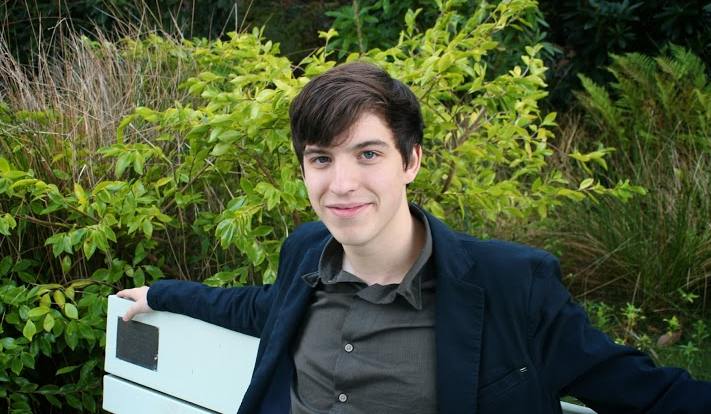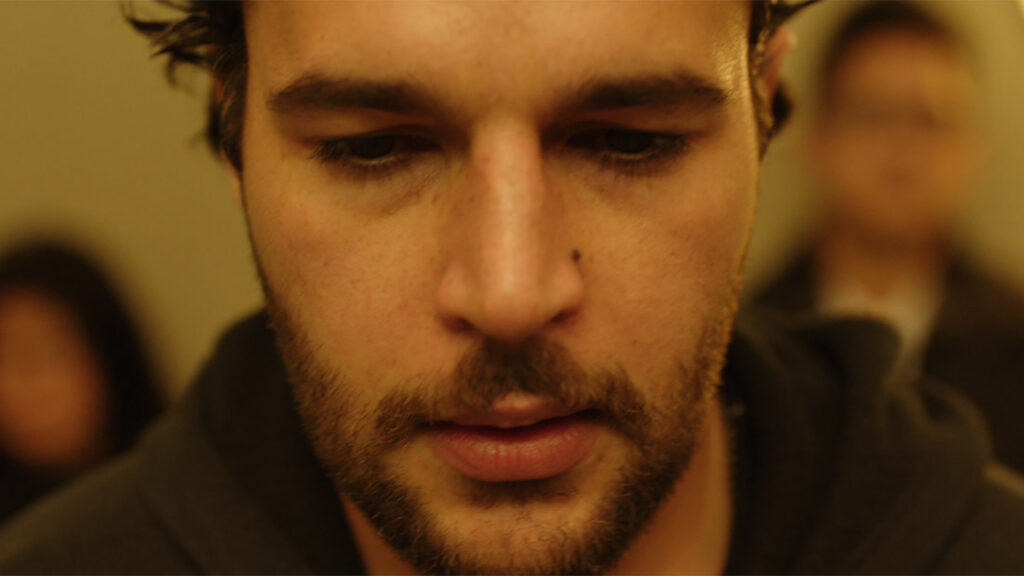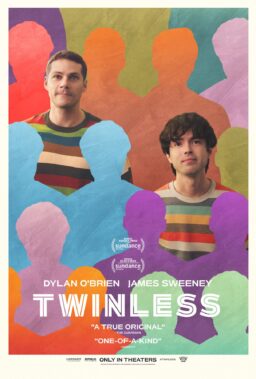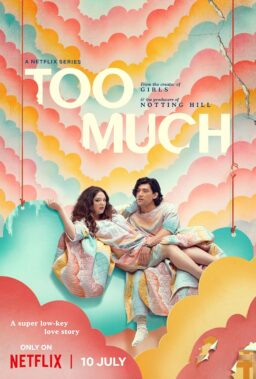It takes all of 30 seconds into “James White,” a film in the
Next program of Sundance 2015 that premiered Friday to almost universal raves,
to recognize that Christopher Abbott made the right choice in jettisoning “Girls,”
the divisive HBO series created by Lena Dunham where he played Allison
William’s on-and-off beau. Directed by Josh Mond, the film casts Abbott as the
eponymous protagonist tasked with taking care of his ailing, cancer-ridden mother
(played by Cynthia Nixon). Playing the angry, self-destructive New York writer,
Abbott eschews stereotypes and cliché. It’s the type of bold, evocative work
that makes careers, and puts people on the map. Shortly after the film’s
premiere here in Park City, Abbott spoke to RogerEbert.com about the
complexities of his character, the pain that accompanies death and how he
couldn’t envision working as a nurse.
Did you know
immediately upon reading the script that this was something you had to do?
CHRISTOPHER ABBOTT: Josh and I were friends, and I’d read a
bunch of drafts, so I was involved early on in the process. So, yeah, I knew
off the bat that I wanted to work with Josh. And then, especially when I first
read the script, I knew I wanted to do it. And I’m even more excited about just
the acting part of it, of just being able to collaborate with Josh on this. And
as an actor, you don’t always feel like you get to have a say so much in what
goes on, and I felt a healthy amount of authority in that way. And I was
excited to do that with him.
Did you help write in
some parts?
No, no, I mean—little suggestions. Little suggestions, yeah,
actor-y stuff, the way things sound—things sounding natural and stuff like
that. But the writing was Josh.
Reading through
Josh’s drafts, did you find yourself identifying with the character?
The thing about it is, the themes in this film are broad.
They’re universal, but then what makes this unique and special is that Josh
tells his story extremely specifically. So although I don’t identify with the
immediate circumstance of losing my mother—I luckily have not had to experience
that—I have experienced loss in my life, whether it was grandparents or other
relatives. And once you’re over ten years old, I think pretty much everyone has
gone through that. So I think the film is extremely universal in that way. In
one way or another, everyone knows what that’s like.
There’s no protocol
for death. No appropriate response. And the movie captures that so damn well.
Yeah, and one thing I was trying to be conscious of doing
was—especially in the scenes where James is taking care of the mother—to be
emotional. It’s emotional but I wanted it to be more about the monotony of
taking care of someone every day and how much that sucks. And no matter how
much you love somebody, that sucks and you don’t want to do it. And I’ve been
through that, and I wanted the frustration of that to come out.
It comes through. You
know you just have to deal with it.
It’s a day-to-day thing. It’s in the back of your head, but
what’s important right now is “get her a towel.” “Get her a
Tylenol.” It’s like the little battles that you have to do, I think. I
think it’s important to show that.
And then the movie
sort of pivots in that scene where you want to go out and party…
He wants to release. Just take your mind off it. And with
alcohol or whatever, he numbs all that stuff.
He desperately wants
to regain some semblance of normalcy.
And he puts pressure on his friends. He puts pressure on
everyone around him. The character is kind of demanding in that way, maybe too
demanding of the people around him. But it comes from a good place because I
think he, like Josh, and like the character, would do that for anyone.
That requires a
certain friendship, the way your character demands stuff from Scott’s
character.
Some people wouldn’t—some friends, I guess, wouldn’t stick
around for it.
No, they’d split.
“That’s not my problem.” That kind of attitude.
I think that’s why
the movie works so well, though, that universal quality. That everyone’s dealt
with this ineffable pain.
You know I characterize that in the film, in the hotel
scene, he’s like, “Nobody’s telling me what to do,” in the drunken
kind of haze.
Right, and there’s so
much truth in that drunken haze.
That’s why that stuff comes out. When he’s like, “Tell
me what to do. Nobody’s telling me anything.” There’s such a frustration
in that of having to do all this stuff and no doctors or whatever, no one’s
giving you a straight answer about anything. It’s like the situation, with a
layer of confusion and haze around it—it can drive you nuts.
You want the
immediacy. And in your head, it’s like your issues are the most important.
Especially in a hospital scenario, and I completely
understand because doctors and nurses have to deal with this on a daily basis,
with hundreds of people. And when you’re there with someone that you know, that
you love, you can’t help but feel like your situation is the most important.
But that’s part of the struggle with that.
I think they know
that.
They know that, of course. I mean, I think about it too. I
don’t think I know anyone that’s—do I know any nurses?
I was about to say,
can you imagine doing that?
Like, what kind of a face you have to put on. Delivering
news as a doctor.
Because you want to
empathize with everyone.
You want to but you can’t—you can’t lie. You can’t lie to
them about it so you have to give them, sometimes, the worst information at
face value.
Do you want to write
or direct?
Not right now, no. I’m still working on being an actor. I want to try to be really good at one
thing first, before jumping around. I think some people are able to do that.
Has this always been
the path you wanted to take?
No. No, I didn’t start until—I think my first class I took,
I was about twenty years old, at a community college that I went to before I
moved to New York. And then I started going to school in New York pretty soon
after that.
And what did you want
to do before that?
I didn’t know. I had no idea. I was going to community
college, so I was kind of taking the general classes. I didn’t even know what I
was going to try and study, and I was like, “Oh, maybe psychology.”
But I had been working a bunch of jobs that I was doing at the time, also.
Where are you from?
I grew up in Connecticut. I did, like, landscaping and
stuff. A landscape architect, I thought at one time, but none of those things
came to any sort of fruition. They were just ideas or thoughts of what I might
be able to do. But once I took the acting class, I was like, “Oh.”
So you moved to New
York.
Six months after that I dropped out of the community college
and started going to school in New York at HB Studio, which is not a
university, you just go and take classes.
Had you heard about
it?
Yeah, well, I got a Backstage magazine, which is a theater
magazine, and I looked in the back, and there was a free audit week. So I was
like, “Oh, I’ll go check it out.” So I took the train down, audited a
class, liked it, and then audited a few more, and then started taking my own
classes.
When did you know,
when you were taking the classes, that this was it?
The class I took at community college, by far, wasn’t the
best class, but it gave me the hint of “this is what I want to do.”
And then once I started going to school at HB, and studying with the teachers I
studied with, I just…
Did people think you
had it right away?
Not necessarily. I don’t know. The thing is, some of the
first classes I took were exercises. And then I started taking scene study
classes, where you do scenes. So no, it didn’t feel like this grand thing, but
I think it was healthy. But my first class I was taking was—”pretend to be
on the subway platform and stand there.” So I’d be up there for like five,
ten minutes and just act out being on a subway platform. It’s not like I did
that and everyone was like, “Oh my god, this is Brando.” But I knew
for myself and that was enough.












